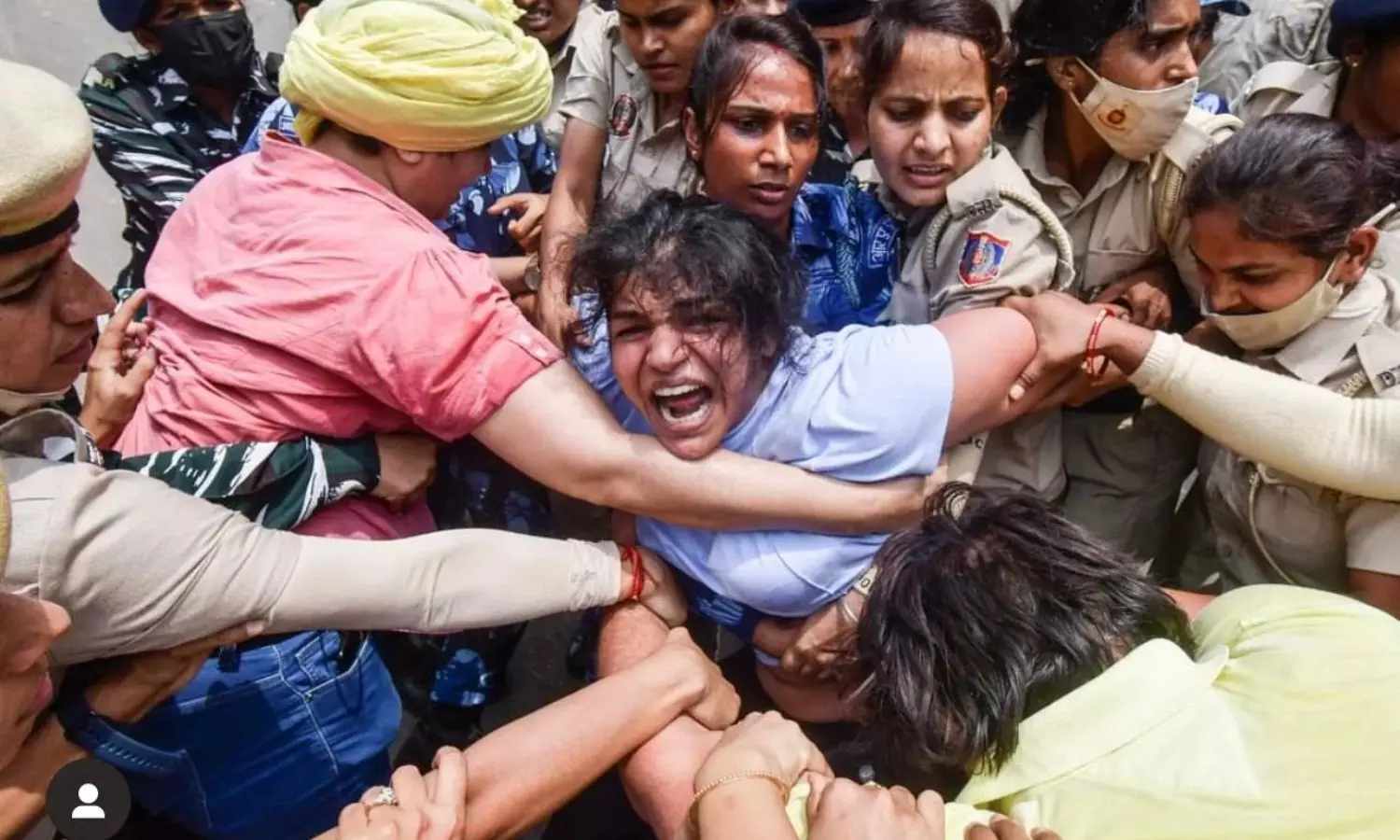Wrestling
Sports book of the year: How a memoir reveals the grit and frailties of a wrestler
Unlike other placid Indian sports autobiographies, Sakshi Malik's Witness stays true to the complexities of human life.

With Sakshi’s revelations and Jonathan Selvaraj’s skillful narration, Witness is a compelling read. (Photo Credit: Juggernaut)
The year 2024 saw the release of some of the most intriguing sports books. There was the brilliant Boundary Lab by lawyer Nandan Kamath, which explores how sports test human limits and challenge social norms.
And then there was the exceptional autobiography I Have the Streets: A Kutti Cricket Story by Ravichandran Ashwin, co-authored by Sidharth Monga.
Another notable work was wrestler Sakshi Malik’s memoir, Witness.
Given the seriousness of the Indian wrestling crisis over the past two years and the raw, revealing nature of Sakshi's account, the book emerges as a rare piece of work on Indian Olympic sports, offering an intimate, captivating and unflinching look at the challenges she faced both on and off the mat.
A depiction of raw courage
"Wrestling is the art of moving the body against its will. When it came to being pushed around or pushing, I thought I knew all the moves. But on the morning of June 28, 2024, I learned a powerful new technique that no coach had ever taught me," writes Sakshi in her brutally honest memoir Witness, co-authored by senior sports journalist Jonathan Selvaraj.
As a wrestler, Sakshi captured the imagination of Indian sports fans when she became the first and only Indian woman wrestler to win an Olympic medal at the Rio Olympics in 2016.
The achievement etched her name in history but her courage off the mat is equally amazing.
Throughout her career, Sakshi demonstrated the resolve to challenge the powerful and corrupt system governing her sport, especially as the conditions for women wrestlers continued to worsen.
In India, sportspersons and public figures often shy away from standing up to the status quo, fearing backlash or perhaps loss of their status or fame.
Sakshi, however, was an extraordinary exception.
Much like Olympic gold medallist Abhinav Bindra's widely acclaimed memoir A Shot at History, co-authored by Rohit Brijnath, Witness enriches the small yet fascinating canon of candid Indian sports autobiographies.
Coming in after 13 years of Bindra’s memoir, Witness is a welcome addition to this list.
Sakshi's bravery extends beyond her achievements on the wrestling mat. She stood in solidarity with young wrestlers who accused former Wrestling Federation of India (WFI) president Brij Bhushan Sharan Singh of sexual harassment and exploitation.
Despite possessing the wherewithal to rest on her laurels earned through years of hard work and dedication, Sakshi joined the protests at Jantar Mantar, where she spent nights in the tents and faced humiliation, including being dragged through the streets of the national capital by the Delhi Police for daring to march to the new parliament building.
"My strength evaporated, and before I knew it I was bundled into the bus," Sakshi recalls in the book.

In December 2023, Sakshi announced her retirement from wrestling as a mark of protest, citing the disrespect and ignominy she felt as a woman in sports.
Her memoir, published by Juggernaut Books earlier this year, has been widely praised for its raw honesty. The book portrays Sakshi’s fiery, emotional, and vulnerable personality, all brought to life by the polished writing of seasoned journalist Selvaraj.
Witness dispels the stereotypical Indian sports autobiographies as sanitized and emotionally shallow and instead offers a compelling and engaging narrative.
It presents Sakshi's life as a series of vivid stories, offering readers a firsthand look at her journey from growing up in the rigid society of Rohtak, Haryana - a state once infamous for its skewed male-to-female ratio - to becoming a trailblazing wrestler in a male-dominated sport.
Honest and candid
Past sports memoirs, such as Playing It My Way by Sachin Tendulkar, have been criticised for overreliance on statistics and steering clear of controversy.
Those books tried to be sane in order to retain the greatness and clean image of the players, but in the end, they looked placid and failed to appeal to the readers.
In contrast, Witness delves directly into Sakshi’s experiences, staying true to the complexities of human life, where fun, pain, joy, success, and struggles are vividly narrated. The book is brutally honest, candid, humorous, and deeply emotional.
Sakshi admitted being afraid before bouts, almost sick with worry. "I have always been afraid, sometimes almost sick with worry. It is like feeling of dread before you write an exam, but it is amplified a dozen times," she writes in the book.
She spares neither her family members nor society from her fearless critique.
“I was extremely close to my grandmother, Chandravali Devi. It was she who raised me during the first four years of my life. About two weeks after I was born in Mokhra, my father Sukhbir Malik’s village, my mother Sudesh returned to work. She would visit me every few days, but for a long time, it was my dadi whom I called my mother,” Sakshi recalls in the memoir.
Describing her grandmother's battle with asthma, Sakshi states: “Dressed in a kurta and salwar, she was always busy feeding the buffaloes or cooking on the open-fire chulha. Cooking on that chulha caused her persistent, hacking cough. I would always be scared when I had to run and find her asthma pipe when it got too bad.”
A Compelling read
Her childhood memories include moments of freedom given by her grandfather and her attempts to blend in as 'one of the boys.'
“I was never given the impression that I was a girl and had to behave a certain way. Unlike other girls of my age, who always wore salwar-kameez suits, I would be the only one in shorts and T-shirts,” she writes.
The book inevitably touches on Sakshi’s encounters with Brij Bhushan.
Addressing the question of why she did not raise her voice during her playing career, Sakshi wrote, "If I raised my voice, he would never have let me reach this level. Me and everyone else kept quiet because we did not have any other option."
The book has also detailed the wrestlers’ controversial protest in Haridwar, where farmers' leader Naresh Tikait 'tricked' them by taking their medals away during a planned immersion in the river Ganges.
Witness is not limited to tales of her fight against injustice.
It also delves into her evolution from being a struggling wrestler to a champion, her reflections on the wrestling culture in Haryana, and her observations about fellow wrestlers like Vinesh Phogat and Bajrang Punia.
With Sakshi’s revelations and Jonathan Selvaraj’s skillful narration, Witness is a compelling read.
The lack of quality sports memoirs in Indian literature makes it stand out even more and is poised to remain a significant piece of work in the years to come.
